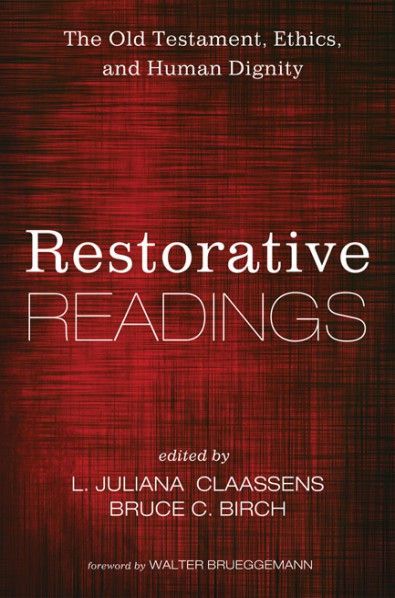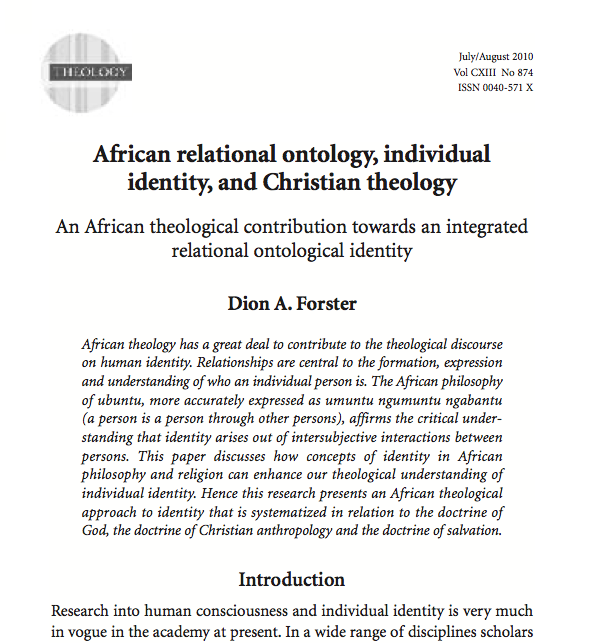Some weeks ago I posted and entry entitled '
Christian and positive - when the body of Christ has HIV AIDS'
A short while before writing that post I had recorded a brief video describing my thoughts on this matter. I only managed to upload my video last night. So I am posting it as an update here. Please see the video towards the bottom of this post.
God bless,
Dion
Here's that original post with the new video inserted towards the bottom of the post:
Today my friend Grant Russell alerted me to an article posted in the Guardian Online Newspaper entitled Pastor's 'Jesus had HIV' sermon angers South African Christians by David Smith.
I can understand why the preacher in question, Xola Skosana, would preach such a sermon. However, I can also understand why South African Christians may take offense to both the title of his message and the sermon's title.
First, let me say that I agree with Rev Skosana - the body of Christ does have AIDS!
In an article that I have just published in the Epworth Review, Vol 32, No 2, 2010 (a theological journal that is published in England) I made exactly the same point. You can read the article here: The Church has AIDS: Towards a positive theology for an HIV+ Church.
Here are two excerpts from my introduction to the article:
One of the most controversial statements in the contemporary Church is surely the assertion that ‘The Church has AIDS’! This statement challenges Christians to recognize that it is impossible to do theology and engage in Christian life and ministry without taking into account the impact of HIV and AIDS on the world...
Within the Church – the Body of Christ – there are many persons who are HIV+. This reality changes not only who we are as a Church, it also changes how we are the Church. In our creeds we affirm that the Church is ‘One’ – this unity is more than just a structural unity. Solidarity is central to the unity of the Church. It was out of this reality of true solidarity that the Methodist Church of Southern Africa adopted the following statement at its annual conference in 2005: ‘The Church has HIV/AIDS: We care. “When one part of the body is affected the whole body suffers” 1 Corinthians 12:26.’
 This image is a photograph of a poster that was circulated in Methodist Churches in Southern Africa. It bears the bold, and true, statement "The Church has HIV/AIDS - we care".
This image is a photograph of a poster that was circulated in Methodist Churches in Southern Africa. It bears the bold, and true, statement "The Church has HIV/AIDS - we care".
The point is this, Christians believe, according to Paul's theology, that the Church is the "body of Christ" (see for example 1 Corinthians 12:12, Colossians 1:18). If there are members of the Church that are HIV positive then the Body of Christ is HIV positive.
That is controversial, but it is true. If one part of the body suffers the whole body suffers 1 Corinthians 12:26.
In my article I argue something similar to what the Guardian reports on Rev Xola Skosana - we are responsible for one another, and as such the whole Church (all across the world) must consider itself HIV +. The HI virus infects the whole of the body. Unlike cancer one cannot remove the ailing part of the body. The virus affects every part of the body.
Here are some statistics about HIV from the article in the Epworth Review:
South Africa’s HIV/AIDS statistics are fairly well known.6 Sub-Saharan Africa has the highest precedence of HIV infection in the world. Where it is left completely unchecked the HIV infection rate has risen to as high as 1 in every 2 persons (50 per cent of some population groups in Botswana).7 Of the estimated 33.2 million persons living with AIDS globally, more than 22.5 million live in Sub-Saharan Africa – that amounts to 68 per cent of all HIV+ persons in less that 10 per cent of the world’s geographic land mass. Each day more than 1,600 persons are infected with the virus. In most government hospitals more than half of the patients are HIV+. By 2009 the life expectancy of a person living in Swaziland8 had declined from 60 years of age to just 32 years.9 Compare this to the United King- dom where the life expectancy of the average person born in 2009 is 79 years.10 Approximately 4,500 people in Sub-Saharan Africa die of HIV/ AIDS-related medical causes each day.
In a chapter that I wrote for a forthcoming book entitled Alienation and Connection: Suffering in a global age. (edited by Lisa Withrow and Joerg Rieger) I developed this argument in a slightly different way. The chapter is entitled Empire, economics and apathy: A theological reflection on suffering as a result of HIV AIDS.
I introduced the concept with another rather controversial statement, saying that any Southern African Church that does not have an HIV AIDS ministry cannot be a Christian Church! [yes, I know that I will get into trouble for this one!]
My contention is this - if 68% of all HIV+ persons in the world live in this region, then the Church has a massive responsibility to see that God's loving will is brought to bear on this situation. God cares about every person! The Church is God's instrument, the instrument of the mission Dei (the mission, or work, of God).
So, yes, I agree with Rev Skosana - the Body of Christ is HIV+. Perhaps I would have titled the message slightly differently. Instead of saying 'Jesus had HIV', I would say that 'The body of Christ is HIV+'.
As a result I can understand how Christians may respond with shock at the statement that Jesus HIV. That statement is not accurate. But, I do believe that the point is well made. As Christians we need to understand that we have a critical role to play in ministering to God's World. And since this world includes HIV positive persons it is not a matter of 'us' and 'them'. Rather it is a matter of 'us'.
Here is a video reflection that offers some further thoughts on this very important issue!
The body of Christ has HIV AIDS from Dion Forster on Vimeo.
I'd love to hear your thoughts, reflections, and ideas!
You can find the Guardian article on Rev Skosana here.
I'm not sure if my comments show up on google searches.
So, please forgive me for reposing a comment in the follow up section as well Thomas! Your question is so important that I would truly want others to consider the points below.
Rich blessing,
Dion
My response to Thomas copies form the comments:
Hey Thomas,
Thanks for your comment on this! First, let me say how blessed I am that you have the care of HIV infected persons and our surrounding community within your ministry! That is precisely what I am praying and working for - that every Christian, and certainly every Church, would have some strategic and significant Christian response to this matter.
Of course in this instance the post is not directed at you, but rather at the majority of Christian Churches (and Christians) who have not formed an appropriate response to HIV infection in their midst.
In the article that I wrote, which was published in the Epworth Review, I quote some empirical research on how Churches (and individual Christians) in Southern Africa have chosen not to respond to HIV infected persons in their ministry. Some have taken a condemnatory stance, rejecting and further stigmatizing infected persons and their families. Mainly this is because of a poor theological position on HIV. In particular my research has shown that the most common theological position in relation to HIV infection is that sickness is a punishment from God for some form of direct sin (or the sins of parents or other family members). Now, naturally this is a complex cultural phenomenon, but popular theology shapes popular response (or lack thereof).
I wrote a chapter for an American book (referenced above) in which I record an interview with a young HIV + girl (barely a woman) which shows the immense suffering that she and other HIV + persons face because of the rejection and lack of compassion (let alone care) they get from communities that indicate overwhelmingly (80% in the last census) that they are Christian.
In the book Church communities confronting HIV & AIDS (edited by Gideon B. Byamugish) I wrote up a chapter in the form of a case study. The case study is called 'Nosipho's story - no greater love'. It tells a mixed tale of marginal care and tragedy of a child headed household in KZN (see pp.5 forward). Nosihpho was a 13 year old girl. She was not HIV+ at the time of the story. Her 8 year old brother was not HIV+, but her 5 year old sister was infected through mother to child transmission. Both her parents had died of AIDS, she (13 years old) was caring for her brother and sister.
The complexity of situation is this: She could not get enough food to feed her little sister (who was receiving some treatment via a local Church based clinic) and her brother. She had to pay the 'aunty' who looked after his little sister while she was begging and her brother went to school. As a 13 year old she chose not to eat so that her little sister could take her midicine and survive, she could feed her brother and pay his school fees, and give the remaining money to the 'aunty' who, although she was cruel to her little sister, at least looked after her.
Nosipho had been offered a chance at a better life - all she had to do was engage in sexual acts with the men she met at the side of the street. At the time of the story she was wondering whether she should take up this offer, get more money and care for her siblings... Her fear, however, is that she would also get HIV. The story ends with her anticipating a meeting with the community social worker who cares for children like her and her siblings at a local Church in their informal settlement.
This story made me realise just how little the majority of Churches are doing to care for our own people... People like Nosipho who love the Lord, need just a little bit of practical care and loving guidance to 'make their way in the world'.
So, the point of this post is to challenges every person who would read it, listen to to the video, and pray about doing something (no matter where they're located in the world, no matter how many, or how few HIV+ persons they have in their Church or community). This is our problem, and unlike you and your Church, very few of 'us' are doing something substantial about it.
Please pray with me and spread the word! We have work to do!
Bless you in your ministry,
Dion
 Monday, May 25, 2015 at 2:26PM
Monday, May 25, 2015 at 2:26PM  A new book for which I wrote a section has been published! The book is called ‘Restorative Readings: The Old Testament, Ethics and Human Dignity’. It was edited by two wonderful friends, Professors Julie Claassens and Bruce Birch. This is a magnificent collection of chapters on issues related to reading the Old Testament text within the context of issues related to Christian Ethics and the Human Dignity discourse.
A new book for which I wrote a section has been published! The book is called ‘Restorative Readings: The Old Testament, Ethics and Human Dignity’. It was edited by two wonderful friends, Professors Julie Claassens and Bruce Birch. This is a magnificent collection of chapters on issues related to reading the Old Testament text within the context of issues related to Christian Ethics and the Human Dignity discourse. 







